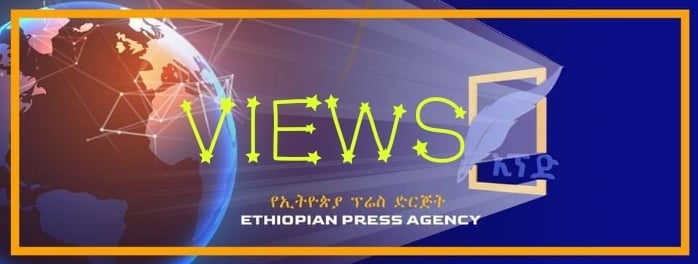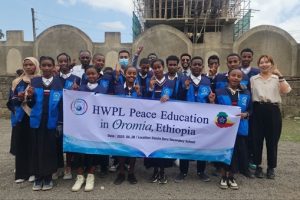
Ethiopia has started reaping the fruits of its natural resources especially with which the Abbay River endowed. Following its commitment to come out of the grip of poverty it has found itself in, Ethiopia has now been trekking on the right boulevard to declare independence against poverty.
Nine years ago it born a child—the Grand Ethiopian Renaissance Dam (GERD) and has safely raised penetrating a range of ups and downs forwarded from numerous elements at home and aboard, and the child has now become adolescent to serve its mother paying the debt it has been indebted to since long before back.
If truth be told, not only is Ethiopia going to be benefited out of the construction of the Grand Ethiopian Renaissance Dam (GERD) but all riparian countries especially the two African states, Egypt and Sudan, are also at the frontline in procuring the fruits of the effective accomplishment of the dam. Though a given nation is expected to comply with the international Trans boundary resources like water, they have the right to garner the benefits of these resources well.
However, in rare circumstances some countries have spent time pointing their fingers towards others and inciting confrontations instated of together enjoying the common asset they have shared since long back drawing important lessons from other countries of the world which have been friendly sharing and using waters in a harmonious way.
Even some want to pass binding verdicts in order not to leave others to use their resources freely. The case of Ethiopia, Egypt and Sudan can be cited here a case in point. For instance, once a Sudanese minister warned Ethiopia that his country could take legal action if the former goes ahead with plans to fill a mega-dam on the Blue Nile without first reaching a deal with Khartoum and Cairo.
In the 21st century where the world is becoming a small village due to a magnetized bond—globalization—the three countries have thrown unwanted and irrelevant words towards one another leaving the peaceful avenue to entertain a fair, equitable, legitimate and agreeable share of water, which has always been reflected by Ethiopia taking the bilateral and trilateral ties into account since time immemorial with the two sisterly countries in particular and with the whole continent and the universe in general.
Thanks to the Egyptian government for revising its stance and unveiling the reality on the ground stating that either the second Grand Ethiopian Renaissance Dam (GERD) filling or the third one doesn’t’ affect Egypt. It is really a promising move to further buttress the regional integration and grow together.
The Ethiopian government has always portrayed that GERD is crucial for economic development and power generation. Hence, either Egypt or Sudan have to well comprehend the full and legitimate right of Ethiopia and its move towards an equitable water sphere as it has contributed 86% of the Nile waters.
Here, Egypt’s fears about dam could imperil its water supply has been made unblemished by its officials and experts. Former Sudanese water minister has also uttered what has to be done by all riparian countries with especial emphasis on the three sisterly neighbors sharing loaves of bread out of the Abbay River to make use of GERD potential.
It is well recognized that GERD has been a source of tension in the Nile River basin ever since Ethiopia broke ground on it in 2011 as Egypt and Sudan view the dam as a threat to vital water supplies, while Ethiopia considers it crucial for its electrification and development.
These two diametrically thought have to be well bridged forever and the countries can exploit the natural resource fairly and equitably as it is important that the parties should display magnanimity and understanding of one another’s interests so as to have what each and every country deserves out of this great natural resource.
The first dam filling in July 2020 had hit its target of 4.9 billion cubic meters—which is enough to test the dam’s first two turbines—which is an important milestone on the way towards actually producing energy thereby bringing about real change in Ethiopia in particular as its 60% of population has been leading life with no electricity. The second dam filling as well as the completion of the dam helps the nation and its people declare their rebirth.
Following the relentless efforts of the visionary leaders and unreserved trial of patriotic negotiators, the goal to impound an additional 13.5 billion cubic meters in summer this year is going to be attained as preparations have already been finalized.
Though Egypt and Sudan wanted a trilateral agreement on the dam’s operations to be reached before reservoir filling began, Ethiopia has continued filling as the process is a natural part of the dam’s construction.
Since coming up with a fluctuated stance about the GERD, acknowledging the flow of the Nile as more predictable and an introduction of third farming season and it could provide Sudan with a cheaper and more reliable electricity on the one hand and the dam would threaten national security if Ethiopia filled the dam without solving the outstanding issues on the other, benefits no one, all riparian countries have to come to the right track and get benefited out of it.
In a nut shell, growing together is possible in the Horn of Africa in particular as many of the nations have been intertwined in a range of relations like people-to-people, topographical scene and other related conducive grounds to do business. Thus, all riparian countries are expected to well eye at Ethiopian mega project. GERD is a viable means to grow together, indeed!
BY MENGESHA AMARE
The Ethiopian Herald May 25/2021





